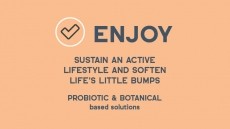Quercetin may support lung health for smokers

Data published in Cancer Epidemiology, Biomarkers & Prevention found that frequent consumption of quercetin-rich food was associated with expression of a known tumor suppressor.
“Our findings provide suggestive insights into a possible mechanism to explain the inverse association between quercetin-rich food consumption and lung cancer risk observed in epidemiological studies,” wrote researchers led by NIH’s Maria Teresa Landi, MD, PhD.
Apples and onions
The study adds to the steadily growing body of science supporting the potential benefits of quercetin, a flavonoid found in fruits and vegetables. Potential health benefits include lowering of inflammatory markers, cholesterol reduction, and improving blood pressure.
However, many of these potential benefits are the result of in vitro or animal studies and data from human studies is rare.
One such human study by researchers from the University of Utah did indicate that a daily 730 milligram supplement of quercetin led to significant reductions in blood pressure.
The study, said to be the first to report the blood pressure-lowering activity of this flavonol, was published in the Journal of Nutrition (Nov. 2007, Vol. 137, pp. 2405-2411).
Cancer risk reduction
The new study indicates that cancer risk reduction may also be added to the list of potential benefits. The NIH and Yale researchers analyzed the expression of microRNA in people with lung cancer. MicroRNAs are short, single-stranded RNAs involved in the expression of genes. Misregulated microRNAs are said to play a role in cancer development.
MicroRNA data was analyzed for 264 lung cancer cases and quercetin intakes were assessed using a food-frequency questionnaire.
Results showed that a “quercetin-rich diet differentiated miR expression profiles of the tumor suppressor let-7 family among adenocarcinomas”, said the researchers.
Data also showed that, among former and current smokers with adenocarcinoma, there was differences in the microRNA expression between people with the highest-and-lowest quercetin intakes.
“To our knowledge, the present study is the only investigation examining the association between dietary quercetin, at a habitual consumable level, and microRNA expression in lung tissues,” wrote the researchers.
“In addition to having both dietary information and microRNA expression data, this study included several variables that allowed tight control for potential confounders.
“This richness of epidemiologic data coupled with epigenetic data from human tissues permitted an integrative approach – making it possible to explore underlying mechanisms that may explain the protective effect of quercetin and lung cancer risk seen in observational studies.”
Source: Cancer Epidemiology, Biomarkers & Prevention
Published online ahead of print, doi: 10.1158/1055-9965.EPI-12-0745
“Influence of quercetin-rich food intake on microRNA expression in lung cancer tissues”
Authors: T.K. Lam, S. Shao, Y. Zhao, et al.














